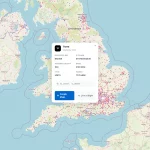BT and Vodafone UK Reiterate Desire to Make Netflix etc. Pay

The Net Neutrality debate (i.e. protecting the open internet from abuse by UK broadband ISPs and mobile operators) reared its head again today after BT and Vodafone both put their names to a new statement by the European Telecommunications Network Operators’ Association (ENTO), which was signed by 16 telcos’ CEOs.
In case anybody has forgotten, the existing Open Internet Access Regulations – as softly enforced by Ofcom and the 2016 Open Internet Code, essentially means that providers should not impose excessive restrictions against legal internet traffic and must treat almost all of it equally (e.g. they shouldn’t favour specific services, such as by blocking or slowing access).
KPN, Altice Portugal, Orange Group, Deutsche Telekom, BT Group, Telia Company, TIM Group, Telefónica, Vodafone Group.
However, there are some exceptions to this, such as for when providers need to impose general traffic management measures, court ordered blocks or security measures (e.g. anti-virus/spam filtering). Ofcom is currently reviewing the guidelines (here and here) to better consider recent changes, such as the advent of network slicing in 5G networks (the current guidelines make it difficult to harness this) and the post-Brexit landscape of legislation.
Advertisement
At the same time some of the biggest providers, particularly those with strong interests in the content (e.g. TV) space, have never fully given up on their desire for more flexibility. This was underlined last year by BT’s call for greater freedom (here). One aspect of this has been the now ancient calls for internet content providers (that could cover everything from websites to Netflix etc.) to pay internet access providers to help carry their content.
The current rules prevent this because they stop ISPs from favouring content sources based on who pays them the most money, which might in turn lead to a degraded experience for other users (e.g. slowing the quality of Netflix or YouTube on certain tiers). This typically helps to ensure that excessive access controls over content don’t result in a walled garden style internet experience.
The latest statement from ENTO, which has a clear vested interest in this area, reiterates their desire to see a change that would require content providers to pay ISPs. The access providers have in the past argued that this could also make their broadband and mobile packages cheaper (or at least reduce future price hikes), but this overlooks the fact that content providers would also need to raise their prices to compensate.
Extract from ENTO’s Letter – Signed by 16 Telco CEOs
A sustainable, thriving internet ecosystem is in the interest of all European citizens and it relies on the achievement of the EU goals. Timely action is a must: Europe missed out on many of the opportunities offered by the consumer internet. It must now swiftly build strength for the age of the metaverses.
For this to happen, and to be sustainable over time, we believe that the largest traffic generators should make a fair contribution to the sizeable costs they currently impose on European networks. We must ensure that Europe does not suffer from scarcity of digital infrastructure.
A fair contribution would benefit first and foremost consumers, as it would help enable faster and more inclusive roll-out, bringing more coverage, resilience and quality. It would also benefit SMEs, who recently voiced the need for tech companies to “adequately contribute” to roll-out: 5G and fibre are key to SMEs’ competitiveness. In addition, a fair contribution would send a clear financial signal for streamers in relation to the data growth associated with their use of scarce network resources. This could generate significant energy savings and help achieve net zero, both of which are so important at this time. Finally, we expect it also to benefit tech companies, who rely the most on massive network upgrades, as we move to an age of open and connectivity-enabled metaverses.
This is why we strongly welcome the statements by EVP Vestagerviii and the consultation announced by Commissioner Thierry Bretonix. It will lay the ground for a solid legislative initiative that effectively addresses the matter. We support a timely calendar that allows Europe to deliver by the end of the current Commission mandate. In addition, we are respectful and fully supportive of the need to uphold the EU Open Internet principles: consumers must continue to enjoy all lawful content and applications available on the Internet.
Inclusive roll-out requires the full telecom sector to stay mobilised. For this reason, we believe that the fair contribution should be addressed to all telecom providers who are committed to achieving the EU digital goals – no matter whether they are small or big, traditional or alternative.
We stand ready to continue supporting EU institutions as they work to create the conditions for delivering a successful green and digital transition, enabled by timely policy action.
The letter relates to future EU policy, but the fact that the CEO’s from BT and Vodafone have signed it, as well as Ofcom’s ongoing review, give it relevance for the UK too, while at the same time showing that the biggest industry players across Europe continue to harbour the same mindset as they held a decade ago – back when Net Neutrality policy was first being formed by the UK Government.
Advertisement
At this point it’s worth remembering that demand for broadband and mobile data services would not exist without internet content providers (e.g. YouTube, Netflix, websites etc.). Some ISPs may complain that the increase in related data usage from these services and others raise their costs, but that’s the nature of the beast (cost of doing business) and should ideally continue to be reflected in the prices we all pay as end-users.
The statement also strays into somewhat quirky territory by suggesting that forcing content providers to pay a “fair contribution” to ISPs that carry their traffic would also “generate significant energy savings.” We assume this must be some reflection of greater efficiency in the CDN/caching (content delivery) path, but we’re yet to be convinced that such savings, if they can be realised, would be all that “significant“.
In our view, the existing rules, while imperfect, have generally worked well to keep the balance fair and the internet open (as it was always intended to be). We should point out that many smaller and medium-sized ISPs support this position too.
The ISPA, which represents UK ISPs from a much broader cross-section of the market, told Ofcom earlier this year that the “core principles of the UK’s net neutrality framework have worked well” and they see “no significant or sustained concerns” that would warrant “a more restrictive interpretation of net neutrality rules.”
Advertisement
Finally, we should point out that the scope of Ofcom’s current review, which seems to be taking longer than expected, is limited in that it is intended to inform their work in monitoring and ensuring compliance with the existing rules, and the operation of current guidance on complying with the existing rules. But any changes to the core rules themselves would be a matter for UK Government and, ultimately, Parliament.
Mark is a professional technology writer, IT consultant and computer engineer from Dorset (England), he also founded ISPreview in 1999 and enjoys analysing the latest telecoms and broadband developments. Find me on X (Twitter), Mastodon, Facebook, BlueSky, Threads.net and Linkedin.
« ISP Ogi Offer 6 Months Free FTTP Broadband to New Customers






















































Netflix for instance is running in AWS and paying a lot for data transfer. ISPs like BT are charging their customers for data transfer/internet access as well. They (BT, others) also very often offer discounted Netflix/Disney/Spotify having their commission on it.
This isn’t really the case anymore. While they likely have a presence in AWS, the bulk of the content comes from dedicated hardware that they locate in sensible places. ISPs can even get some of this kit to plug direct into their own network.
Check out Netflix Openconnect.
The ISPs complaining about the data being forced onto their networks is an attempt to line their pockets. This happens quite often in the states where there is a monopoly in a lot of cities in respect to fibre options. ( https://time.com/8681/netflix-verizon-peering/ )
Both are correct. Netflix use AWS for logins, recommendations etc. but the video itself is handled by dedicated hardware, usually at ISP sites to reduce traffic costs.
The AWS bandwidth isn’t a lot in comparison.
The usual two names…..
CDNs are already in place for broadcasters and streamers.
An excuse to start carving up (and charging more) for internet access to users. Instead of one subscription covering anything, lets have lots of them whereby anything streaming is going to cost you another £40 per month on top of what you are paying, this is what they really want. Do minimal for their network and make it prohibitively expensive to any services that require bandwidth thereby keeping expectations of download and upload speeds down in the future as most wouldn’t pay so they would cite they don’t need to keep up with speeds.
Dinosaur companies like these just need to die quite frankly.
BT will charge Netflix but still won’t pay their staff
The greed is a one way street minimum wage and maximum exploitation of workers is the foundation of capitalism.
BT’s statements on this issue are a disgrace. Considering there’s a few Netflix OCAs in their network, I’m not sure how they can say Netflix costs them money – none of it crosses peering points other than the nightly updates.
They’ve also cited gaming platforms as a bandwidth hog before too. If its so bad why do they keep offering packages with Xbox Live subscriptions included?
Joke. Nothing but money grabbers.
> I’m not sure how they can say Netflix costs them money – none of it crosses peering points other than the nightly updates.
Cost of peering point link, low, cost of taking traffic from cache in major city to 1000 Openreach handover points, very high. The customer’s link may not change speed over time, but as their usage grows the ISPs must invest in new cards and links to carry the growing demand to 1000 places.
It is true that BT gets paid by the customers for this, but as a non-Netflix watcher I wonder how much I am subsidising my neighbour’s streaming. Internet will never be like water/electric with pay as you use, and this is the result, messy.
@Mick ERm you’re not “subsidising” anything. You pay for xxMbit and I pay for xxMbit. That’s the *WHOLE* point of net neutrality. What you, me or the dog next door use the BANDWIDTH we pay for isn’t relevant and neither should it be. This is just corporations trying to get money out of both ends of the cable.
We pay a fixed fee per month for a chunk of bandwidth which in the UK, at least, is effectively unlimited (fair use aside but you need to be pulling down 10’s of TB’s a month for a long time to get things capped). If you need less bandwidth, you pay less, if you need more, then you pay more. If the ISP in question has to increase capacity to supply the BANDWIDTH requirements of their customers then it’s completely irrelevant whether that’s down to greater Netflix usage or blindness inducing use of Pornhub.
Stop legitimising the greedy cash grab of these organisations by thinking it’s you paying for someone else’ use, you’re not. If the ISP’s can’t provide the bandwidth you pay for because people are actually using what they’re paying for then they need to either decrease the bandwidth or increase the cost.
Dave. The ISP core network (the 100s of miles between local Openreach exchange and IXP peering sites) is scaled to meet combined usage of all customers. The more traffic there is, the more it costs to buy ports/routers/transmission, and the more the ISP has to charge. True, the Openreach bit is probably not much linked to actual usage, but that only goes to the Openreach exchange.
So ISPA is happy and many of their members don’t have their own connections to Openreach exchanges to deliver broadband they pay a wholesale partner. They don’t pay a fixed rate: they pay a fixed rate then per megabit per second per month.
Economies of scale kick in for those companies that do have connections to Openreach headends nationwide.
Sky and TalkTalk both have caches either very close to or colocated in Openreach headends. Due to their choice of technology they’re able to do this. VMO2’s network has caches close to the edge.
BT have such a problem with streaming they’ll surely have no problem not advertising it as a selling point for their product.
@Mick
“Cost of taking traffic from cache in major city to 1000 Openreach handover points, very high.”
A specious point when it’s BT. Its all wooden dollars to them. Oddly enough, the LLU ISPs who it would actually cost aren’t piping up for this, are they?
If the cost of bandwidth is so expensive, then ISPs need to end unlimited use packages and go back to PAYG.
That way the high users pay their share.
Shower of *******
Last I understood it, Netflix and other big streaming services hosted content quite close to their users.
For instance Netflix hosts CDN in Birmingham for instance so providers really only need to peer locally, hardly like they need to transfer streams across core networks or even overseas.
Just a pathetic attempt at getting paid to do nothing.
I’d be happy to ditch any of these companies at a moments notice for enforcing such antics.
I was pretty sure companies like Netflix had a cache server INSIDE the ISP network, which meant that when I watch Netflix on. BT connection, the traffic is coming from directly inside the BT network, it’s not crossing the public internet at all.
If BT do get away with this idea, I assume they will also contribute “a fair amount” considering they are a streaming provider themselves – right?
No? Well colour me shocked….
Because BT are a streaming provider, then this presumably opens up allegations of anti competitive behaviour? Eg Charging the BBC for iPlayer access, or charging NowTV or Sky or indeed the countless other companies that could be considered to be competing?
Note that Three was absent in the list.
The argument in Europe right now (that precipitated this letter) is that telcos don’t have the market power to extort payment from content providers, so telcos are lobbying for European legislation that forces content providers to pay them.
This is music to the ears of the European Commission, no friend of big tech, in particular Commissioner Thierry Breton, ex CEO of France Telecom so no vested interest there…
But once the principle of some content paying is established, the telcos are now in a gatekeeper position and can force payment from anyone they don’t like, for example a service that competes with their own…
This is a fight for the future of the Internet.
This sort of stuff could backfire on the telcos. If they restrict the quality of a large content provider such as Netflix or Youtube, the telco could become known as rubbish (insert stronger word here) for video streaming. Other telcos would sell their services as the best for …..
Netflix used to publish tables of ISPs which caused customers to get the worst experience when watching, so that in places with competition people could make a more informed choice when it came to their ISP.
In the US, the ISPs have created an oligopoly, crushing competition and allowing rampant price increases.
https://about.netflix.com/en/news/netflix-isp-speed-index-for-july-2022
Why don’t telcos stop offering unlimited usage contracts and charge according volume downloaded and/or uploaded?
This is worth a read on this topic – https://openconnect.netflix.com/Open-Connect-Briefing-Paper.pdf
Selling unlimited* data to customers for a fixed price turns out not to be sensible – who knew? This attempt to externalise the costs should be resisted because it’s the beginning of a slippery slope. Alas, consumers don’t want to look beyond the unlimited* offering, and the intended victims of this cash-grab are big, nasty American companies so I’m not optimistic about this ending well.
If Openreach charge Netflix, within a month Netflix will up their prices to pass all the costs onto customers. Thus everyone just pays for it anyway. Yet Cityfibre and Virgin and all the others won’t be getting any of that money. Its easier just to pay your ISP and they can allow tiered packages e.g 40GB per month cap.
Openreach won’t charge Netflix. They run the underlying network, not push packets to the wider internet. Whilst they help get data from A to B, mostly across the UK, but they don’t care what that data is or who it is for.
BT are an ISP in their own right and the two, for this purpose, are unrelated.
So, how do we make a difference, how do we as consumers/customers make our voice heard and indicate our unhappiness at this smash and grab ISPs are attempting?
In Europe, there will be an open consultation in early 2023 that anyone can respond to. Hopefully Mark will be able to highlight this when it comes around.
For Ofcom’s net neutrality review, the feedback process unclear at this point but they may do similar.
Not surprisingly, this activity is building up a head of steam and imho, the ETNO proposals are a real threat to Internet interoperability (REM IMHO). I do have some skin in this game (via association) and see http://www.commcham.com/traffic/
An earlier and quite useful analysis of this proposal – see https://www.project-disco.org/european-union/052322-why-telcos-calls-for-an-eu-internet-traffic-tax-are-misguided/#.YzrqvHbMLFI